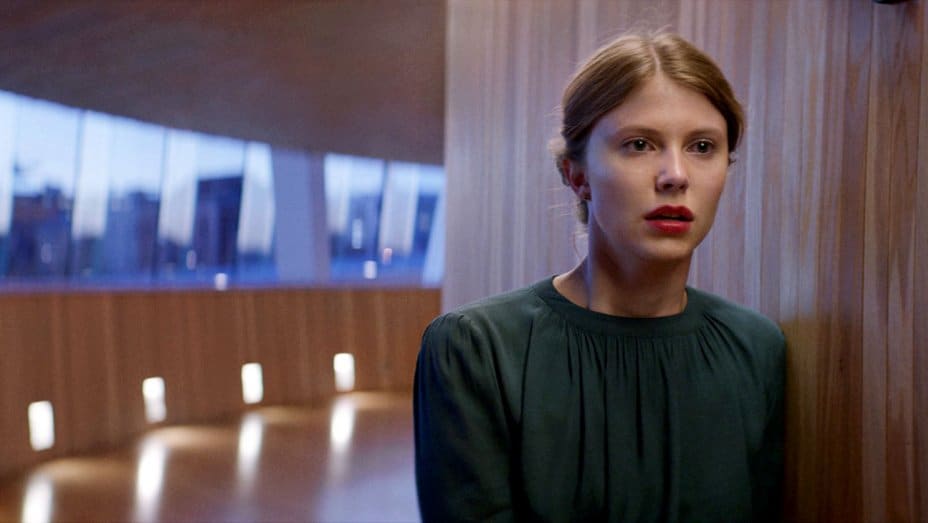
Release Date: November 15, 2017 (VOD Platforms)
Director: Joachim Trier
MPAA Rating: NR
Runtime: 116 minutes
There’s no experience quite as enriching as watching a film that allows its surface narrative to betray a loaded and mystifying interior meaning that’s both elusive and begging to be milled for interpretation. As filmed by the rising talent Joachim Trier, the evocative Thelma is positioned to resist convenient classification because, even by its end, it’s difficult to say what type of experience it is.
Playing so loosely with generic style as it does, Norway’s selection for the Best Foreign Language film becomes infinitely fascinating with how it can illicit such varied and effective emotional responses by simultaneously feeling like a horror film, a supernatural thriller, a coming-of-age tale, a lesbian romance, a family drama and a mystery. Confusing as that may seem, it all works effortlessly because Thelma is an exercise in perfect balance that becomes more rewarding the more you ponder it.
The titular Thelma is an unassuming Eili Harboe whose reserved performance melds her perfectly with the alienated and distant style Trier opts for to film his home of Oslo. A college freshman from a oppressively devout Christian household under the watch of a manipulative patriarch (Henrik Rafaelson in a chilling role), the film positions her as a tabula rasa, hesitant to experience the unknowns of adult life outside of her upbringing.

Those unknowns are first typified with her sexual awakening when fellow classmate Anja enters her life and the film settles comfortably into a touching, rebellious romance that finds life from these actresses’ inherent chemistry with one another. This would have been all well and good as Thelma’s familial conditioning creates palpable tension for her forming sexuality, but when she begins to experience seizures and unexplained phenomenon, the film takes an exciting turn for the cryptic. Layered as it is, Thelma becomes a dense dive into the conflicts of its protagonist’s identity, which expertly pulls from horror and supernatural elements to become a deeply engrossing film unlike anything else.
Trier and his breathtaking cinematography can conjure such loaded impressions from the blankest sets and locations that Oslo has to offer. Positioning Thelma in a series of featureless white rooms and eerily open spaces drives home the feeling of isolation that the film can find in seemingly any scene. Reserved but unarguably beautifully shot, Trier can wring such emotion and story out of his composition and set pieces, despite the script being wisely light on dialogue.
Take one immaculate scene in an opera house where Anja attempts to seduce Thelma while they watch a ballet. The editing and shot cycles rack up such unbearable tension as Trier crosscuts the sensual public affection with the stage performance and Thelma’s realization that her “power,” whatever it may be, is about to literally drop the roof onto the crowd. Scenes like this show how masterfully Trier can work around the metaphor, creatively mining it for such gutting set pieces.

The temptation to disavow the film’s “queerness as supernatural” metaphor as tired or laboured crossed my mind while watching, but the manner in which Thelma explores this idea is both off-putting and begging to be defined. The “powers” such as they are manifest in a seemingly endless number of ways that make me certain university students will jump to write about this film for their “Sex and Cinema” courses.
It’s difficult to recount the visions, hallucinations and phenomenon Thelma experiences without drifting into spoilers, and analysis that will rob you of the joy of interpreting it yourself; but trust me when I say Thelma‘s visuals are dense and intriguing. Even if you don’t want to buy the central metaphor, its meanings are so varied like its genre explorations that there will be something here for anyone to grasp onto and delight in picking apart.
Thelma is a rare film that flaunts how desperately it wants you to interpret it, and, with a director like Trier behind the camera, the effort pays off dividends. While an occasionally clunky line can come up and spoil a mood, the film remains a beautiful and rewarding exploration of identity and the fear of self-acceptance, rendered in crisp, dense, perfect filmmaking. Even beside all this, Thelma joins the prestigious side of Carol for being a film about a lesbian relationship that ultimately does not end in death and trauma, which alone makes it worthwhile.






